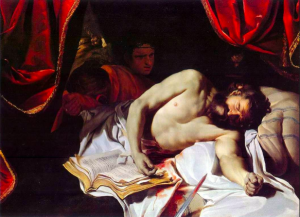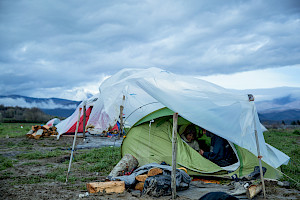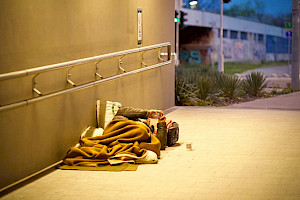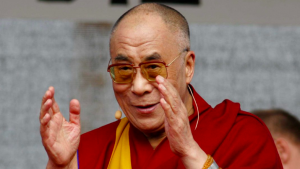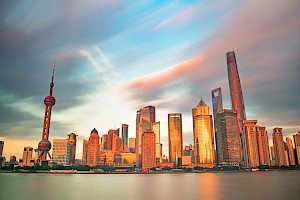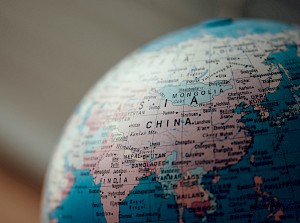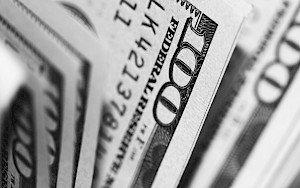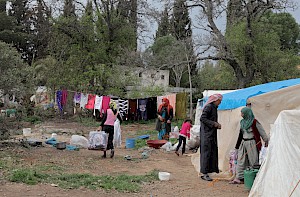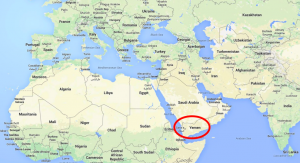As Russia’s attack on Ukraine intensifies, small rays of light shine on the trillion-dollar business of global political corruption
March 15, 2022Originally published in The Toronto Star on March 8, 2022 as contributing columnist
“Corruption is paid by the poor.”
— Pope Francis
Political corruption has been around since the beginnings of civilization. Greek historian Herodotus notes the Alcmaeonid family bribed the Oracle of Delphi priestesses, one of the most powerful mystical forces of Ancient Greek, which prompted Aristotle to quip that even the Gods can be bribed. The fact that bribery and corruption remain common practice in many countries underscores mankind’s permanent flaws of greed and power, but it still doesn’t make it right. Ultimately, it’s the most marginalized citizens of countries that pay the price.
According to the UN Office on Drugs and Crime, the estimated amount of money laundered globally in one year is two to five per cent of global GDP, or between $800 billion and $2 trillion in current U.S. dollars. But due to the clandestine nature of money-laundering, it is difficult to estimate the true number and equally difficult to get a clear picture on how much is laundered as a function of political corruption specifically.
In the U.S., The Foreign Corrupt Practices Act is a United States federal law that prohibits U.S. citizens and entities from bribing foreign government officials to benefit their business interests. However, in many countries no such law exists and in fact, bribery is an acceptable feature of the culture.
In China, for example, it can be expected for salespeople to give a bribe of up to 10 per cent of the final invoice amount to seal a deal. However, hongbao, as this form of payment is called, are also traditionally given as a show of respect and good fortune at holidays and special events between family members, friends, and business associates, creating an ethical quandary — when does a culture of gift-giving cross the line into bribery?
In some Arab countries, the concept of baksheesh covers some forms of bribery and is socially acceptable. Even U.S. anti-corruption laws have loopholes that allow facilitation payments, or “grease payments.” These payments are made specifically to increase the speed at which an official might perform a duty which he was already bound to perform. In other words, grease payments are not bribery charges because the official is already going to perform this duty. The grease payment simply means that the official will perform the duty sooner. Makes one conjure up images of a corrupt official saying something like, “You’ve got a nice infrastructure project here. It’d be a shame if anything were to... er, slow it down.”
Ultimately, all forms of political corruption impose a cost on the citizens of a given country. However, the most egregious cases involve profiteering from deadly conflict. This is where organizations like The Sentry play an important role. The Sentry is an organization created by George Clooney and my former International Crisis Group (ICG) colleague, John Prendergast. Their mission is to shed light on systemic corruption and its connection to violence in countries like South Sudan, Sudan and the Democratic Republic of Congo, to name a few. The ultimate goal being to connect money launderers to global financial institutions, who are either unwittingly or intentionally underwriting conflict, and thereby forcing them to close their doors to these criminals and their families.
In one example, The Sentry’s efforts resulted in sanctions being imposed against mining tycoon Dan Gertler and his network. Gertler is responsible for looting much of the DRC’s natural wealth. The Sentry has been active in combating the conflict gold trade, which provides the largest source of revenue to armed groups in the conflicts in eastern DRC. Over $3-billion worth of gold mined in East and Central Africa reaches international markets in the United States, Europe, Asia, and the Middle East annually and 95% of this gold flows through Dubai.
Additionally, The Sentry worked for years to expose the looting machine of the former regime of Omar al-Bashir. To support Sudan’s transition to democracy, The Sentry continues to work to dismantle the underlying system of kleptocracy, and expose spoilers who siphon Sudan’s natural resources and wealth for personal benefit.
Without the complicit assistance of international banks, lawyers, accountants, and advisory firms, it would be difficult for corrupt players to park their illicit gains in stable offshore economies.
Just this past month, a massive leak from Credit Suisse exposed the hidden wealth of some 30,000 accounts around the world — representing approximately $100 billion. The accounts were linked to entities involved in drug trafficking, money laundering and corruption by Middle Eastern political figures.
Occasionally, corrupt political acts are uncovered and make the headlines for a short while. But by then the culprits are often long gone, and their illicit booty is squirrelled away in the form of secret bank accounts and high-end real estate properties in cities like London, Paris, and New York.
And where are these billions laundered? London is a prime example of the many cities around the world that offer an attractive destination for conflict profiteers and other money launderers.
Recently, The Mayor of London, Sadiq Khan, has been calling for a registry of overseas property ownership to crack down on London being used for international money laundering. It has been estimated that £170 billion in U.K. property is held overseas, much of it anonymously. A recent report by the Treasury Select Committee found that it’s far too easy for criminals to clean dirty money through the U.K. and the government urgently needs to strengthen anti-money laundering defences.
Kahn noted that deficiencies in the system allow those with strategic links to Russia’s Vladimir Putin to hide their money in London and elsewhere. With Russia’s recent invasion of Ukraine, politicians worldwide, including President Biden and Prime Minister Johnson, are finally cracking down on these oligarchs. Both administrations have targeted a number of oligarchs and their families in a global search and seizure mission of their ill-gotten gains. The U.K.’s Economic Crime Bill, which has been languishing in draft form for several years, is now front and centre as the creation of a registry that would require disclosure of beneficial ownership of U.K. properties.
Incidentally, Canada recently made changes to add more teeth to its own Proceeds of Crime and Terrorist Financing Act. But then again, while there is occasionally talk of enacting additional new measures to stop political corruption, real action moves at glacial speed.
As The Sentry’s Prendergast told me recently, “There are small rays of hope, but for the most part the system remains intact. In many cases, the laws are being written by those who are beneficiaries of the system. But the leaks like Credit Suisse and the Panama Papers have value. Although the average person may not be surprised to learn that Middle Eastern officials and their cronies have offshore accounts, compliance professionals at global banks follow these leaks closely, as no bank wants the type of publicity that Credit Suisse is currently facing. Although slowly and incrementally, the leaks and the scrutiny they garner do lead to the risk appetite at global banks moving in the right direction.”
It’s sad that Russia’s invasion of Ukraine was what it took for politicians to finally go after Russian oligarchs who created most of their wealth in back room deals with Putin, but there are so many more individuals who have stolen their country’s wealth in similar ways all over the world.
We shouldn’t need the excuse of war to go after them as well.

